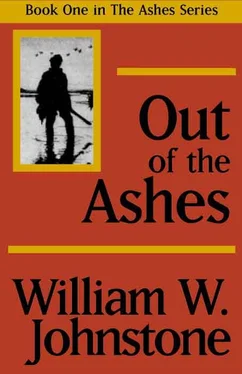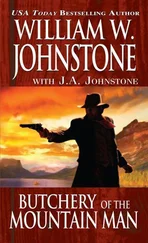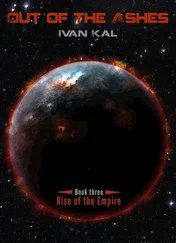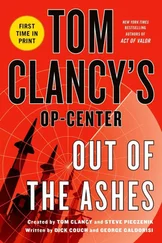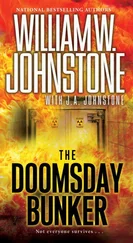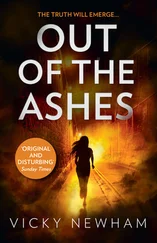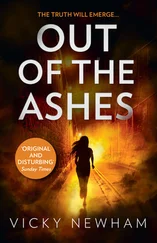No, the government in Richmond did not have the manpower just yet to stop the Indians or the Rebels in the Tri-states. Tri-states and the Indians would have to wait.
“I’m tired of waiting,” Hilton Logan told VP Addison. “I know there is no easy answer, but we simply can’t allow much more of this to continue. If those two groups ever get a really firm toehold—and our intelligence people say they are talking of a written alliance—it’ll be the devil getting them back into the Union. Maybe impossible.”
“The Union is still here, Hilton,” Aston replied, listening more to the drumming of the rain on the window than to the president. The VP often had a full-time job just trying to soothe the ruffled feathers of President Logan. Didn’t the man know his wife—the first lady—was screwing half the men in Richmond? Her secret service detachment spent more time covering her tracks than protecting her life. Aston sighed. “We have to walk lightly, Hilton; don’t want to kick off a civil war.”
“I don’t put much faith in the military’s warnings.” The president looked at his friend. “They always overreact. Aston, I can’t believe you think we should do nothing. Just let the Rebels and the Indians continue without federal guidance?”
The VP laughed at that. “I haven’t heard them asking for our help—have you?”
The president shook his head, refusing to reply. Instead, he let himself warm to his inner hatred of Ben Raines. He despised the man; refusing to admit even to himself that it was not just hatred, it was jealousy.
Aston rose from his chair and poured the coffee. “My God, Hilton… our guidance got us where we now are. Our guidance cost the U.S. many of our friends overseas. Our guidance bled the middle class dry with taxes. It was our constant interference in the private lives of citizens that attributed greatly to the downfall of this nation. Guidance, Hilton? Goddamn!”
“I don’t happen to agree with you, Aston. People need a central point from which to seek advice and guidance.” He thumped a fist on his desk. “Aston, we’ve got to break the backs of the Rebels. Maybe cordon them off, fence them in; then take the Indians out first. Yes,” he mused. “Look, let’s face facts. They’ve stolen three states, and they have no intention of returning them. Because of their resistance, many others in this nation have refused to hand over their guns, and many others are arming themselves with illegal weapons. We’ve got the makings of a damned gunpowder society in this country. When will people learn that when government passes laws, those laws are to be obeyed? It’s for their own good! No, Aston, if we can hammer the Rebels into submission—for the good of the entire country—the rest of the nation will fall into line as well.”
“Oh, yes,” Aston replied, sarcasm thick in his voice. “That’s very good. The world is still stumbling about, attempting to recover from a germ and nuclear war, and you want to start another war. For the good of the country, of course. Hilton, leave the people of the Tri-states alone.”
Hilton Logan rubbed his temples; his headache had returned. It always did whenever he discussed Ben Raines. He thought: God, how I hate that bastard. Even Rev. Falcreek hates him. And he loves everybody… even Jane Fonda, so he says.
“Aston,” he said wearily, “they’ve hanged and shot people out there in… Tri-states.” He spat the words from his mouth. “Capital punishment is the law of the land.” It wasn’t, and he knew it. “They’ve shut down the roads—or blown them up—turning the place into a damned fortress. Colonel Parr won’t even go near the place; says Ben Raines is crazy in combat. A damned ex-mercenary is governor of three states. That is incredible. Aston, they refuse to allow my agents to even come into the place and look around. They threw an FCC inspector out—literally. Some nitwit named Cossman said if he came back he’d tar and feather him. Everybody carries a gun out there. My God, Aston—even the ladies carry guns. Those nuts are teaching war in the public school system. The entire country is an army! They—”
“…Have no crime,” Aston interrupted. “And zero unemployment. And fine medical care—for everybody—on an equal basis. And good schools, and the best race relations anywhere in the world. And do you know how they’ve accomplished all that in such a short time?”
“You’re damned right, I do, Aston! By throwing out any person they consider an undesirable.”
“That’s only part of it, Hilton, and you know it. No—they’ve done it in part by education and partly because they’ve formed a government that is truly of and by the people. It might behoove us to take lessons from Ben Raines.”
“Hell, no! Never!”
Aston tapped a thick letter on the president’s desk. “Here it is, Hilton. You read it. Ben Raines has made the first peace overture. He says they will pay a fair share of taxes to the government of the United States, to be decided upon; vote, live under the American flag, and fight for it, if need be. But they run their own schools, they have their own laws, their own way of doing things. Hilton, there doesn’t have to be any more bloodshed. We could have a powerful ally in Ben Raines’ Tri-states.”
“Spitting in the face of the Constitution?”
Aston smiled grimly. “We did—years ago. What gave us the right and not them?”
“I don’t agree with you about that, and you know it.” The president swiveled in his chair to watch the rain splatter on the window. Damned demonstrators were still out there, protesting something or the other. He wished they’d all fall down and die from pneumonia. “The damned Indians are rebelling, too. Just taking things that don’t belong to them.”
“Just like our ancestors did to them, a couple of hundred years ago.”
“And it’s all Ben Raines’s fault,” Hilton said. “Everything is his fault. He… if he were only dead!”
And I’ve heard the same said about you, Aston thought. “Hilton, it’s a brand-new world out there, and we’re going to have to adapt to it. These are changing times, so let’s change with them.”
“I am the president of the United States. I give the orders. End of discussion.”
“I don’t like the sound of that! Hilton, something else: it’s been almost five years since the military put us in office. Tell me; when will proper elections be held?”
Hilton Logan swiveled in his chair, glared at his VP, then turned to once more gaze at the rain. “When I say so.”
Logan was right to a degree about the laws in the Tri-states. People were hanged and shot. More than a hundred the first years; fifty-odd the second year; ten the next year; and none since then. It is a myth to say that crime cannot be controlled, and the government of the Tri-states proved that by simply stating they would not tolerate it, and backing up their words with hard, swift justice. But capital punishment was not the law of the land. They had prisons, and they were as prisons should be: not very pleasant places to be, but with adequate rehabilitation facilities, the violent housed far from the nonviolent, and weekly visits from ladies so inclined toward that type of employment—which was legal in the Tri-states… and regulated… and taxed.
No one had to steal; there were jobs for anyone who wanted to work, but everyone who lived in the Tri-states and was able to work… worked.
During the first year in the Tri-states, there were marriages among the Rebels, as they began the job of settling in. Steven Miller and Linda Jennings; Al Holloway and Anne Flood; Ben and Salina.
“Yes, suh.” Ike grinned. “Once that ol’ boy got himself a taste of brown sugar, just couldn’t stand it.”
Читать дальше
